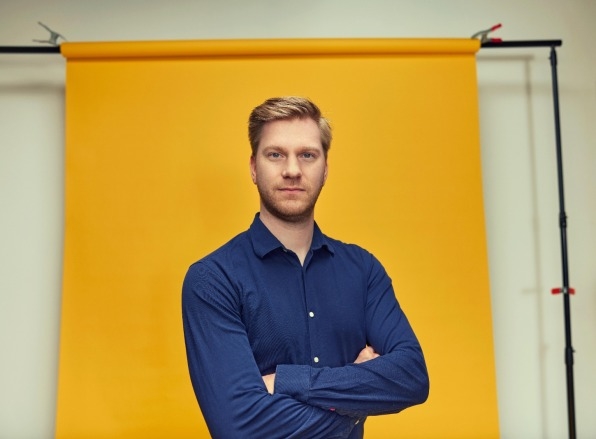What if we could disrupt the traditional farming model: stop killing animals, reduce greenhouse gas emissions, but still keep eating meat? Cruelty-free meat and dairy products are on the rise, and investors are working up an appetite for precision-fermentation startups that would grow real proteins without the animals. But will it always remain just out of reach for mass consumption, or will this new meat ever make the cut for Thanksgiving dinner?
Daan Luining was part of the team that made the world’s first cultivated, lab-grown hamburger in 2013, in the Netherlands. Back then, it was billed as the most expensive burger of all time. But Luining—who we spoke to for the World Changing Ideas podcast—was determined to perfect cellular agriculture techniques and get the costs down. “It’s the idea that you can literally have a steak and then the animal that’s made from it is sitting next to you, living its best life. . . . So it’s a bit corny, but I like it. It’s like you can have your steak and eat it, too,” he says.

The mission of Luining’s Dutch startup Meatable is to make 100% real-meat products without harming any animals in the process, and he’s starting with pork sausage—set to hit the market in 2025. It may sound like science fiction, but the techniques being used to cultivate lab-grown meat are actually pretty similar to production methods we’ve already been using for centuries. “Making beer is actually cell agriculture.” says Luining. “You’re using an organism for beer. This is yeast, and you’re feeding it hops and grains to create another product. And this is exactly what we’re doing.”
Meatable starts with animal cells and grows them to replicate the natural process of fat and muscle creation. Next, they mix together muscle and fat cells in proportions found in a traditional sausage.
The production process takes three months from start to finish—versus the three years it takes a cow to mature before it can be slaughtered for food. “I’m not a vegetarian, but I know the impact that [commercial meat farming] has on this planet and that we cannot keep going like we’re going right now,” Luining said. “This is basically a secondary agricultural revolution.”
Cow-free ice cream brand Brave Robot is taking a similar approach. Cofounders Ryan Pandya and Perumal Gandhi have raised $300 million to take on the dairy industry and scale up their precision-fermentation process.
“Now, instead of making things that you put a small amount of into a food product, we’re actually making the core, almost identity, of the food product using fermentation. And it really is kind of that simple,” says Pandya. “It’s a tank that you feed sugar to little organisms in, and they convert it into protein. They eat the sugar. Like you feed grass to a cow, and they turn it into milk.”
Independent studies suggest the fermentation process would use 45% less energy than global farming and require 99% less land. It could be a big win for the climate, but can these companies scale up in time?
(35)